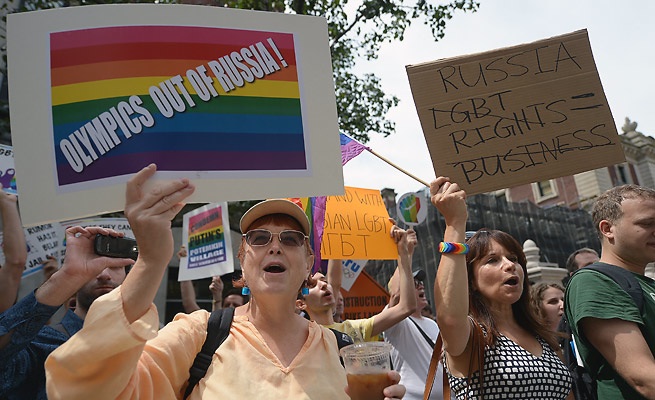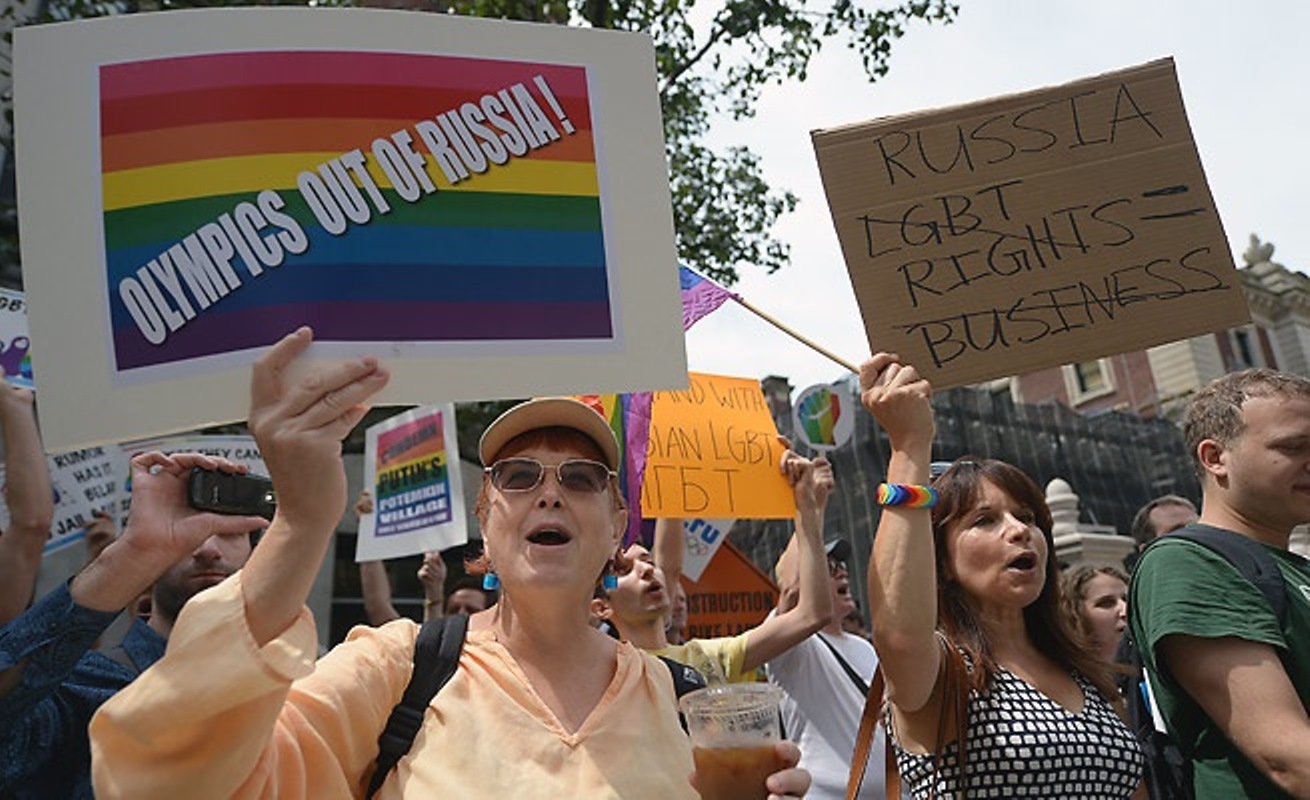Bode Miller calls out Russia’s anti-gay laws

Photo Courtesy of Emmanuel Dunand/AFP/Getty Images
As the 2014 Sochi Winter Olympics are fast approaching, many people are concerned about how recent Russian political changes will affect the atmosphere, as well as the participating athletes during the games.
Article 6.21 passed on June 30 by Russian president, Vladimir Putin, stated that all propaganda promoting non-traditional relationships to minors would be banned. Violating the law may lead to large fines and detainment for both Russian and non-Russian citizens.
Many countries participating in the Olympics are concerned about what this may mean for both athletes and spectators who identify themselves as gay or lesbian.
The Washington Post reports that the mayor of Sochi, the town in which the games will be held, claims that these worries are unnecessary.
“It is their right to be as they are. We just don’t want them to force their ideas on others,” he stated in the Washington Post.
Despite the mayor’s claims, it appears that worries about the safety of those in the LGBT community persist. While they may not be breaking the law by identifying as gay or lesbian, it seems obvious that Russian society still views non-traditional relationships as inferior and socially harmful.
This could lead to discrimination or malicious acts from some Russian citizens.
It is obvious that many countries disagree with Russia’s legislation and are unnerved by the Olympic Games occurring in this environment.
Maryville College junior, Amber Vargas, believes that attending the Olympics will mean that increased safety measures are a necessary precaution.
“We should be worried about the safety for the people there no matter what the Russian government says because the law is definitely a sign of intolerance,” Vargas said.
Sophomore MarQuis Chappell said he believes that wanting to boycott the Olympics is completely understandable.
“Russia is basically telling people that if they identify somewhere within the LGBT community they must hide that part of who they are while in there,” Chappell said. “That is horrible. If a part of their personal identity is being proud and publicizing their sexual identity, it is wrong to keep them from doing that.”
He made sure to state that he also understands it is each culture’s right to hold different beliefs; however, hosting a worldwide event sometimes calls from some compromises.
“I think it is absolutely ridiculous what Russia is doing right now in terms of going so far backwards in human rights,” Brandon Denney, sophomore, said, “Especially to be in such a public position of hosting the Olympics, it really doesn’t make sense to pass legislation like that. I would support a boycott, but I really don’t know how much of a difference that would make.”
Overall, it seems that many MC students disagree with the law, but not necessarily with boycotting the Olympics. It appears at this point that the US will take the sportsmanlike path by competing despite their political differences. Perhaps it was inconsiderate or even ignorant of Russia to pass such legislation so closely to hosting an international event, but the U.S. has little grounds to boycott given their own lack of legal clarification on the issue.
ESPN interviewed one bobsledder, Elana Meyers, who said, “I think as a country we really need to focus on where we stand on gay, lesbian and transgender issues, and then whatever Russia decides to do is an afterthought.”
Many logical and important points have been brought to attention during this debate. It seems that boycotting the Olympics would be a rather extreme and unnecessary measure on America’s part. However, having proper safety and security needs to be a major concern for all those attending and competing in the Olympics. A worldwide event would provide the perfect opportunity for gay rights activists to protest against Russia’s recent law, and it would not be the first time that the Olympics have been used as a platform to make a statement about larger social or political issues.

